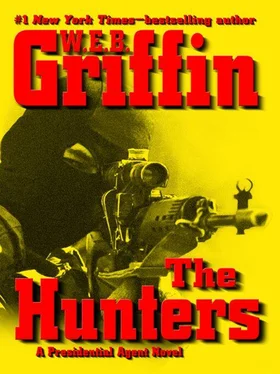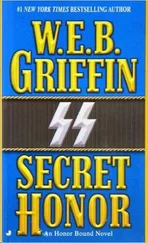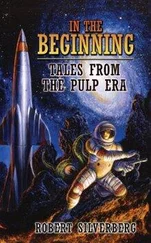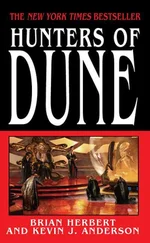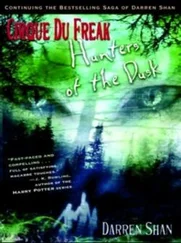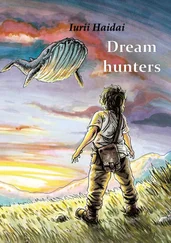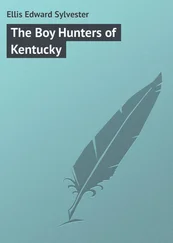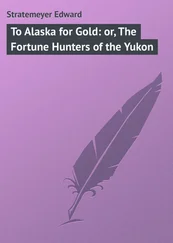W Griffin - Hunters
Здесь есть возможность читать онлайн «W Griffin - Hunters» весь текст электронной книги совершенно бесплатно (целиком полную версию без сокращений). В некоторых случаях можно слушать аудио, скачать через торрент в формате fb2 и присутствует краткое содержание. Жанр: Триллер, на английском языке. Описание произведения, (предисловие) а так же отзывы посетителей доступны на портале библиотеки ЛибКат.
- Название:Hunters
- Автор:
- Жанр:
- Год:неизвестен
- ISBN:нет данных
- Рейтинг книги:5 / 5. Голосов: 1
-
Избранное:Добавить в избранное
- Отзывы:
-
Ваша оценка:
- 100
- 1
- 2
- 3
- 4
- 5
Hunters: краткое содержание, описание и аннотация
Предлагаем к чтению аннотацию, описание, краткое содержание или предисловие (зависит от того, что написал сам автор книги «Hunters»). Если вы не нашли необходимую информацию о книге — напишите в комментариях, мы постараемся отыскать её.
Hunters — читать онлайн бесплатно полную книгу (весь текст) целиком
Ниже представлен текст книги, разбитый по страницам. Система сохранения места последней прочитанной страницы, позволяет с удобством читать онлайн бесплатно книгу «Hunters», без необходимости каждый раз заново искать на чём Вы остановились. Поставьте закладку, и сможете в любой момент перейти на страницу, на которой закончили чтение.
Интервал:
Закладка:
"The people I brought over here are good, Mr. Masterson," D'Allessando said. "And, frankly, a job like this is better than commuting to Iraq or Afghanistan, which is what they've all been doing."
"Okay, so that's what I'll recommend to Betsy," Masterson said. "When do you want to talk to her, Charley?"
"Now, if possible, sir. I'm on my way to Texas. I want to see my grandmother, and I can be with her only until they call me to tell me what's happened in Uruguay."
"I'll get her on the phone," Masterson said as he reached for it. "And I'll get you a car to take you to the airport."
"That's not necessary, sir."
"Biloxi? Or New Orleans?" Masterson asked.
"New Orleans, sir."
III
[ONE] Office of the Legal Attache The Embassy of the United States of America Lauro Miller 1776 Montevideo, Republica Oriental del Uruguay 1150 2 August 2005 The telephone on the desk of Assistant Legal Attache Julio Artigas buzzed and one of the six buttons on it began to flash.
Artigas, a slim, olive-skinned Cuban American of thirty, who had been a Special Agent of the Federal Bureau of Investigation for eight years and assigned to the Montevideo embassy for three, picked up the handset.
"Artigas."
"Julio, this is your cousin Jose," his caller said in Spanish.
Thirty-seven-year-old Chief Inspector Jose Ordonez, of the Interior Police Division of the Uruguayan Policia Nacional, was not related to Julio Artigas, but they looked very much alike. They had several times been mistaken for brothers. That wasn't possible without the same surname, but it could have been possible for cousins, and cousins they had become. They also shared a sense of humor.
"And how goes your unrelenting campaign against evil, Cousin Jose?" Julio replied. He had arrived in Uruguay speaking Cuban-inflected Spanish fluently, and with only a little effort he had acquired a Uruguayan inflection. Many Uruguayans were surprised to learn he was not a native son.
"I would hope a little better than yours," Jose said. "How about lunch?"
"Is that an invitation? Or have you been giving your salary away at the blackjack tables again?"
"I will pay," Jose said. "I will put you on my expense sheet."
"Oh?"
"I hope you have, or can make, your afternoon free."
"If you are paying, my entire week is free."
"You are so kind."
"Where shall we meet? Someplace expensive, of course."
"I'm at the port. How about something from a parrilla?"
"Great minds travel similar paths. When?"
"Now?"
"Get out your wallet."
Artigas hung up. He opened a drawer in his desk, took from it a.38 caliber Smith amp; Wesson "Detective Special" revolver, then slipped the gun into a skeleton holster on his hip.
The pistol was his. It was smaller and lighter than the semiautomatic pistol prescribed for-and issued to-FBI agents, and, technically, he was violating at least four FBI regulations by carrying it.
But this was Montevideo, where his chances of ever needing a pistol ranged from very slight to none. Many of Artigas's peers simply went un-armed. The primary mission of the FBI in Uruguay was the investigation of money laundering.
It was a different story for the DEA guys, who often found themselves in hairy situations. While not necessarily successful in stopping the drug flow, they were very successful in costing the drug merchants lots of money and consequently were unpopular with the drug establishment. They went around heavily armed.
Artigas had chosen the middle ground. While it is true that you never need a pistol until you really need one, it was equally true there is no sense carrying a large and hard-to-conceal cannon when a less conspicuous means of self-defense is available.
Artigas walked across the large, open room to the open door of a glass-walled cubicle that was the office of Special Agent James D. Monahan, who was because of his seniority the de facto, if not the de jure, SAC, or Special Agent in Charge, and waited for him to get off the phone.
"Something, Artigas?" Monahan asked, finally.
"I have just been invited to lunch by Chief Inspector Ordonez."
"Shit, I was hoping you were going to tell me you know where the hell Yung is."
FBI Special Agent David W. Yung, Jr., a fellow assistant legal attache, was not held in high regard by his peers. He came to work late-or not at all-and left early. His research into Uruguayan bank records produced about half the useful information that came from the next least efficient of the others. And since he was still here-despite several informal complaints about his performance and back-channel suggestions that he be reassigned to the States-it was pretty clear he had friends in high places.
Another, less flattering rumor had it that Yung had been sort of banished to Uruguay because of his association with Howard Kennedy, the former Ethical Standards Division hotshot who had changed sides and was now working for some Russian mafioso. That rumor had some credence, as it was known that Yung had been assigned to the Ethical Standards Division.
It is a fact of life that people without friends in high places tend to dislike those who have them and that FBI agents do not like FBI agents whose personal integrity is open to question.
"Maybe still asleep?" Artigas asked. "It's not quite noon."
"I let his goddamned phone ring for five minutes. That sonofabitch!" Monahan paused. "Ordonez say what he wanted?"
"Only that he hoped I could make my afternoon free."
"Et tu, Artigas?"
"He's got something on his mind, Jim," Artigas said.
"Ride it out," Monahan said. "But if you happen to run into Yung in a bar or a casino somewhere, would you please tell him that I would be grateful for a moment of his valuable time whenever it's convenient?"
"I will do that."
Artigas went out the front entrance of the embassy, found his car-a blue Chrysler PT Cruiser-got in, and drove to the gate.
The embassy, a four-story, oblong concrete edifice decorated with two huge satellite antennae on the roof, sits in the center of a well-protected compound overlooking the river Plate.
A heavy steel gate, painted light blue, is controlled by pistol-armed Uruguayan security guards wearing police-style uniforms. For reasons Artigas never understood, cars leaving the compound are subjected to just about as close scrutiny as those coming into the compound.
He waited patiently while security guards looked into the interior of the PT Cruiser, looked under it using a mirror mounted on the end of a long pole, and then checked his embassy identification before throwing the switch that caused the gate to slide open sideways.
He drove a hundred yards toward the water and then turned right on the Rambla, the road that runs along the coast from the port to the suburb of Carrasco where many embassy officers lived, including Artigas and the again-missing Yung.
Five minutes later, he pulled the nose of the PT Cruiser to the curb in front of what had been built sometime in the late nineteenth century to house cattle being shipped from the port. It now housed a dozen or more parrilla restaurants and at least that many bars.
He got a very dirty look from the woman charged with collecting parking fees on that section of the street. She had seen the diplomatic license plates on the car. Diplomats are permitted to park wherever they wish to park without paying.
In the interests of Uruguayan-American relations, Artigas handed her a fifty-peso note, worth a little less than two dollars U.S., and earned himself a warm smile.
He entered the building. With the exception of one or two women Julio could think of, there was in his judgment no better smell in the world than that of beef-and, for that matter, chicken and pork and a lot else-being grilled over the ashes of a wood fire.
Читать дальшеИнтервал:
Закладка:
Похожие книги на «Hunters»
Представляем Вашему вниманию похожие книги на «Hunters» списком для выбора. Мы отобрали схожую по названию и смыслу литературу в надежде предоставить читателям больше вариантов отыскать новые, интересные, ещё непрочитанные произведения.
Обсуждение, отзывы о книге «Hunters» и просто собственные мнения читателей. Оставьте ваши комментарии, напишите, что Вы думаете о произведении, его смысле или главных героях. Укажите что конкретно понравилось, а что нет, и почему Вы так считаете.
